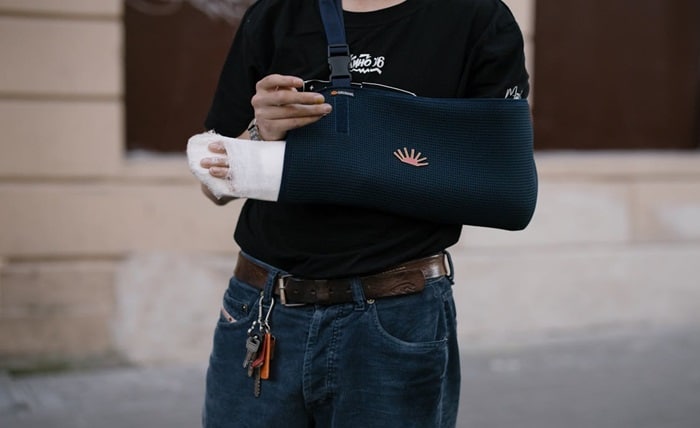Fractures After a Car Crash: 4 Tips to Help You Get Better

A car crash can be a harrowing experience, leaving behind physical injuries, emotional trauma, and financial strain. Among the myriad injuries that can result from such an incident, fractures are among the most common and potentially debilitating.
According to Forbes, fractures are very common in car accidents and can be found in both drivers and passengers inside the cars. Whether it’s a broken bone in the arm, leg, rib, or elsewhere, fractures can significantly impede your ability to perform everyday tasks.
However, with the right approach to recovery, you can navigate this challenging period and emerge stronger on the other side. Here are a few tips to help you get better after experiencing fractures due to a car crash.
#1 Seek Immediate Medical Attention
Following a car crash, your adrenaline may be pumping, masking the pain and symptoms of underlying injuries. However, it’s crucial not to dismiss any discomfort or assume that you’re unharmed.
Fractures can sometimes be subtle or hidden, and delaying treatment can exacerbate the injury and prolong recovery time. Hence, seek urgent medical care, even if you don’t think your injuries are severe. A thorough evaluation by a healthcare professional will ensure that any fractures or other injuries are identified and treated promptly.
According to Kingwood ER, not treating a fracture on time can lead to further health complications. These include everything from infections to non-union or malunion. There’s also a risk that untreated fractures can damage blood vessels and even lead to a permanent loss of function in that area.
#2 Follow Your Treatment Plan Diligently
Once your fractures have been diagnosed, your healthcare provider will develop a treatment plan tailored to your specific needs. This plan may include immobilization with casts or splints, pain management strategies, physical therapy exercises, and follow-up appointments to monitor your progress.
It’s essential to adhere to this treatment plan diligently and follow your healthcare provider’s recommendations to the letter. Skipping appointments, neglecting exercises, or prematurely removing immobilization devices can hinder healing and lead to complications.
#3 Seek Compensation
In the aftermath of a car crash, you may face significant medical expenses, lost wages due to inability to work, and other financial burdens. Consult with a personal injury attorney who can help you pursue a claim against the responsible party. If your car is inoperable after an accident and needs to be transported to another location, using auto shipping services can simplify the process and reduce stress.
According to TorHoerman Law, compensation obtained through a settlement or court judgment can alleviate financial stress. It can also provide the resources you need to cover medical bills, rehabilitation costs, lost income, and other expenses related to your recovery.
Recently, as reported by KSDK, a man survived being thrown from his car in an accident in St. Louis. While he did survive, the man ended up suffering multiple fractures including a few broken bones. He is now working with a St. Louis car accident attorney to better understand his rights and what he deserves legally in terms of compensation.
Like most personal injury lawyers, the St. Louis car accident lawyer will follow due procedure throughout the case. They will talk to all the car accident victims, law enforcement agencies, healthcare facilities, and the culprit’s insurance company. After that, the lawyers can work their magic and find the best possible way to seek compensation from the party at fault.
#4 Adopt a Healthy Lifestyle
Consume a well-rounded diet abundant in vital nutrients such as calcium, vitamin D, and protein to enhance bone strength and tissue recovery. Keep yourself hydrated to support cellular activities and tissue regeneration. Refrain from smoking and minimize alcohol intake as these practices can hinder circulation and impede the healing process.
Also, strive to get an adequate amount of restorative sleep each night, as sleep is essential for tissue repair and overall well-being. By prioritizing your health and wellness, you can optimize your body’s ability to recover from fractures and regain mobility.
Frequently Asked Questions (FAQs)
What is the most common fracture in car accidents?
Fractures of the pelvic bone are frequently considered the most prevalent among bone injuries sustained in car accidents. Fractures of the fibula (lower leg) and femur (upper leg) are also common.
What is the most common injury in a car crash?
Whiplash stands out as the prevailing injury type resulting from car accidents. Minor injuries such as strains, sprains, tissue damage, and bruises collectively make up fifty percent of the cases treated in the emergency room.
How long does it take to recover from a fracture?
The duration of recovery for a fracture fluctuates based on the seriousness and site of the injury. It spans from a few weeks for minor fractures to several months for more severe ones necessitating surgical intervention and rehabilitation.
In conclusion, recovering from fractures after a car crash requires patience, perseverance, and a comprehensive approach to healing. By sticking to the tips above, you can navigate this challenging period and reclaim your health and well-being.
Remember to prioritize self-care, listen to your body, and enlist the support of loved ones and professionals as needed. With time and effort, you can overcome the obstacles posed by fractures and emerge stronger than ever before.




